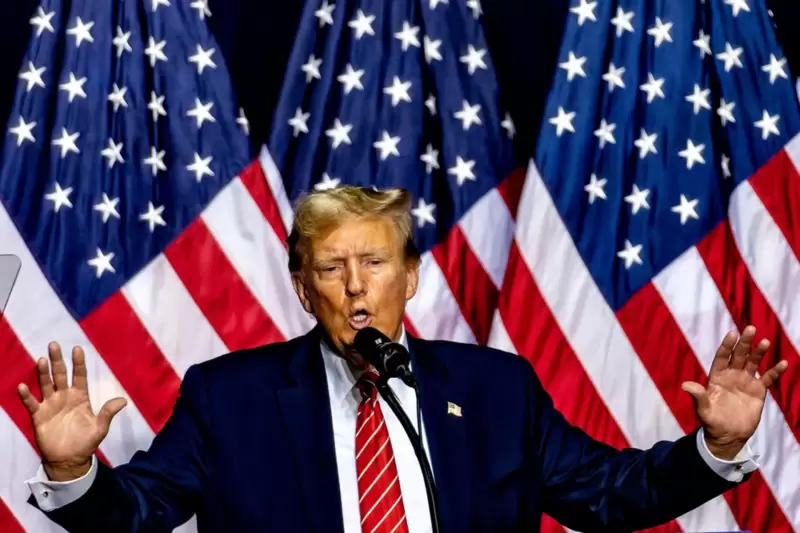 |
|
 |
|
 |
|
 |
|
 |
|
 |
|
 |
|
 |
|
 |
|
 |
|
 |
|
 |
|
 |
|
 |
|
 |
|
Cryptocurrency News Articles
Microsoft Rejects Bitcoin, Prioritizing Stability Over Speculation
Dec 15, 2024 at 03:00 am
The tech giant's shareholders torched a proposal to sink 1% of its $78 billion cash reserves into Bitcoin.

Microsoft’s shareholders shot down a proposal to add Bitcoin to the company’s balance sheet at a meeting on December 10.
The proposal, submitted by the National Center for Public Policy Research, would have seen Microsoft allocate 1% of its $78 billion cash reserves to Bitcoin. The proposal argued that Bitcoin would serve as a hedge against inflation, which has been rising in the U.S.
However, Microsoft’s board rejected the proposal, arguing that Bitcoin is too volatile and that corporate cash should be used for more stable investments.
The proposal faced resistance from the start. Bitcoin’s price swings are legendary. It can double your investment or cut it in half within weeks. That’s not a risk Microsoft wants to take with its treasury. The company needs liquidity, predictable returns, and cash reserves ready to fuel operations — not gamble.
Microsoft’s leadership, from the boardroom to the shareholders, didn’t buy into the hype of Bitcoin as “digital gold.” Sure, Bitcoin delivered jaw-dropping returns—nearly doubling in value over the past year and up over 400% in five years—but that’s not enough to sway a company whose DNA is built on calculated growth and risk management.
And let’s not forget the context. The corporate world has been watching Bitcoin skeptically. Even as some companies like MicroStrategy and Tesla jumped on the Bitcoin bandwagon, others stayed back, wary of regulatory pitfalls and unpredictable market swings.
For Microsoft, the choice was less about being revolutionary and more about protecting shareholder interests.
The fallout: Bitcoin dips, Microsoft stays steady
When the rejection hit the news, the market reacted. Microsoft’s stock barely moved, staying firm at $446 per share. Bitcoin, however, wasn’t so lucky. It dropped over 4%, sliding to around $95,000. That’s the market speaking loud and clear: Bitcoin’s value still leans heavily on how corporations perceive it.
If Microsoft had said yes, it would’ve joined a small but loud group of Bitcoin enthusiasts in the corporate world. MicroStrategy, for example, has hoarded over 402,000 Bitcoins, currently worth about $40 billion.
CEO Michael Saylor has repeatedly criticized conservative companies like Microsoft, claiming they’ve missed out on billions in gains by sticking to traditional assets. Saylor estimates Microsoft could have raked in $200 billion in five years by betting on Bitcoin instead of stock buybacks and dividends.
Tesla, another Bitcoin heavyweight, holds close to $947 million in the cryptocurrency. Elon Musk’s flirtation with Bitcoin has been more erratic, but it’s still a firm part of Tesla’s financial arsenal.
But Bill Gates, Microsoft’s co-founder, has never been a fan of Bitcoin. He’s called it speculative and lacking intrinsic value. Yet ditching Bitcoin will realistically hurt the company’s innovative edge, especially as competitors explore blockchain and crypto integrations.
What this means for Bitcoin
Bitcoin purists might actually appreciate Microsoft’s rejection. Bitcoin, after all, wasn’t built to rely on corporate validation. It was designed to disrupt traditional finance, not merge with it. Microsoft’s decision to keep Bitcoin at arm’s length reinforces its status as an independent, decentralized asset.
The rejection also highlights Bitcoin’s identity crisis. On one hand, it’s a revolutionary currency designed to bypass institutions. On the other, it craves mainstream adoption to push its value higher.
Without corporate strings attached, Bitcoin would’ve continued to grow organically. Its future would’ve depended on decentralized adoption and grassroots support, not the whims of boardrooms; just as Satoshi Nakamoto intended.
Disclaimer:info@kdj.com
The information provided is not trading advice. kdj.com does not assume any responsibility for any investments made based on the information provided in this article. Cryptocurrencies are highly volatile and it is highly recommended that you invest with caution after thorough research!
If you believe that the content used on this website infringes your copyright, please contact us immediately (info@kdj.com) and we will delete it promptly.
-

- Tariff War Fuels US Inflation
- Mar 04, 2025 at 06:05 pm
- Bitcoin prices have been on a rollercoaster ride over the past month. The price of Bitcoin plummeted due to the tariff war initiated by US President Donald Trump, then surged rapidly after President Trump declared his intention to stockpile Bitcoin.
-

-

-

-

-

-

-

-



























































